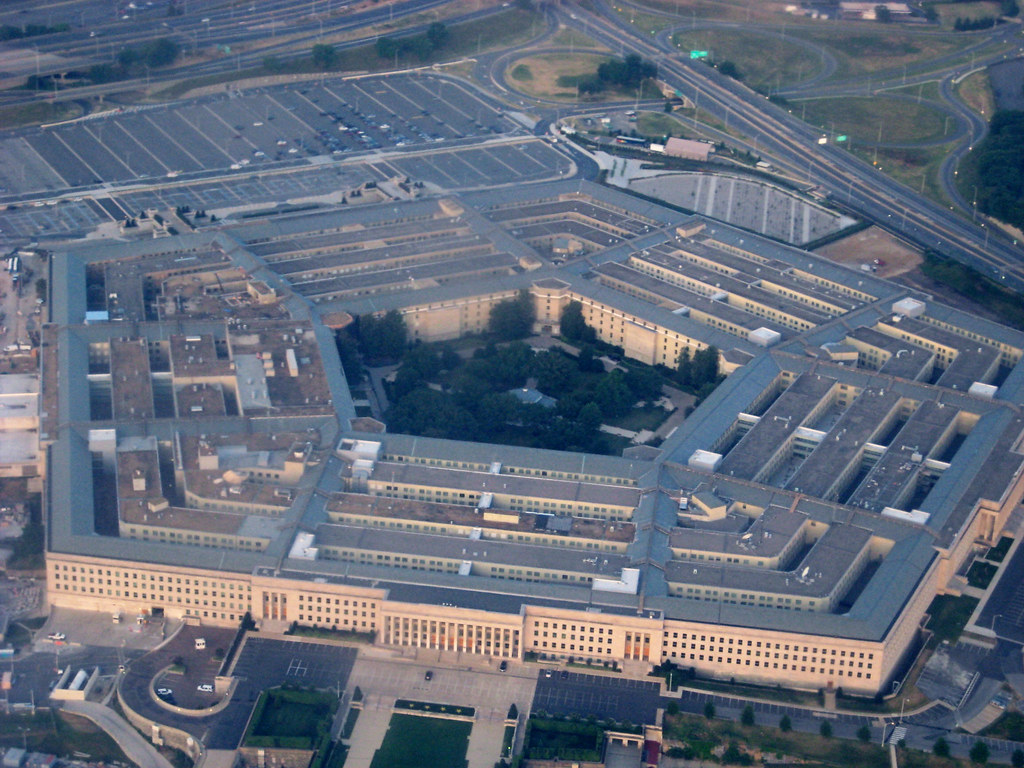
Drone giant DJI received more confounding news for its US operations this week when the Department of Defense (DoD) included the firm in a group of Chinese companies it has entered on an official blacklist.
The announcement officializes the de facto ban the DoD placed on procurement and use of DJI drones by its staff since last year. Though the Pentagon has prohibited the deployment of all off-the-shelf UAVs for official purposes since 2018, it specifically singled out DJI products as “potential threats to national security” last July. That was in rebuttal to news reports citing an internal audit said to have cleared the company’s products as safe for use.
Read more: US Department of Defense statement says DJI products pose ‘potential threats’
This week, the DoD took its interdiction of the drones a step further by including DJI on a list of 13 Chinese companies deemed to be closely tied to China’s military. They joined a group of 28 other organizations previously on the blacklist – a requisite for possible sanctions to be passed on accused businesses.
“The Department is determined to highlight and counter the (People’s Republic of China) Military-Civil Fusion strategy, which supports the modernization goals of the People’s Liberation Army (PLA) by ensuring its access to advanced technologies and expertise are acquired and developed by PRC companies, universities, and research programs that appear to be civilian entities,” the DoD announcement said.
“Section 1260H directs the Department to begin identifying, among other things, Military-Civil Fusion contributors operating directly or indirectly in the United State,” it continued. “The United States Government reserves the right to take additional actions on these entities under authorities other than section 1260H.”
October 7 update
In response to the DoD’s action against the drone company, DJI flatly rejected the Pentagon’s explanation for blacklisting it, and called the move unmerited.
“DJI does not fall under any categories set by the law to be included on the list,” the company said in a statement sent to DroneDJ. “DJI is not a military company in China, the United States, or anywhere else. DJI has never designed or manufactured military-grade equipment, and has never marketed or sold its products for military use in any country. Instead, we have always developed products to benefit society and save lives… We stand ready to formally challenge our inclusion on the list.”
Clearly fatigued with repeated US bans of its craft – and the recurrent negative publicity those inevitably generate – DJI also noted it had taken fast action to halt both sales in and exports to Russia and Ukraine when it became clear both sides were relying heavily on its drones in their ongoing war. That reaction is thus far unique among UAV producers, including American firms, yet remains an effort the company gets little if any credit for.
“DJI stands alone as the only drone company to clearly denounce and actively discourage military use of our products, including suspending all business operations in Russia and Ukraine to try to keep our drones out of the conflict there,” the statement said. “There is no reason why DJI has been added to the Defense Department’s list of ‘Chinese military companies.”
The DoD’s decision to place DJI on its blacklist followed the example of other US government agencies that had previously banned use of its drones as potential risks of data leaks.
The first to make that move was the US Department of Commerce including DJI and its drones on its Entity List. That was followed last year by the US Treasury citing the Shenzhen-based UAV maker among other entities accused of being “Chinese military-industrial complex companies.”
Though initial reasons for blacklisting DJI made specific claims the company’s tech had aided Beijing in the surveillance and repression of Muslim Uighurs, the more recent interdictions more broadly allege targeted companies of maintaining such close financial or operative ties to China’s army they represent quasi-units of the military.
Top comment by Phillip Cleary
DJI has repeatedly denied all those allegations. It has also stated its drones are not capable of leaking data to third parties, and are equipped with options permitting users to prevent their craft or linked gear from transmitting information they collect.
Read: DJI reportedly making headway against US drone blacklist legislation
The DoD’s blacklist announcement comes only a few months after DJI had reportedly made progress in lobbying US legislators to modify draft laws that would have extended existing restrictions affecting the company’s US drone sales.
Despite the expanding number of blacklists sidelining use of DJI drones by US government agencies, officials at both the Department of Homeland Security and the Federal Bureau of Investigations acknowledged their staff continue using the company’s UAVs.
FTC: We use income earning auto affiliate links. More.
Comments